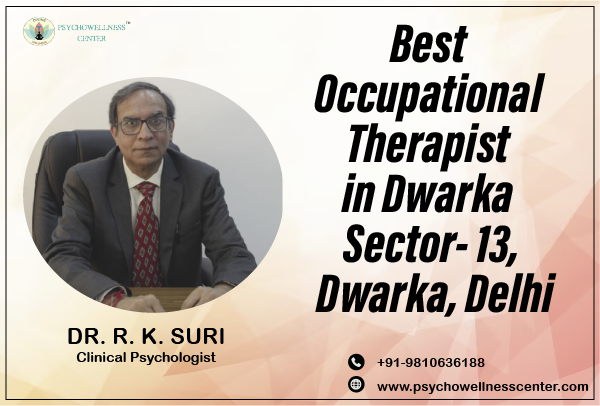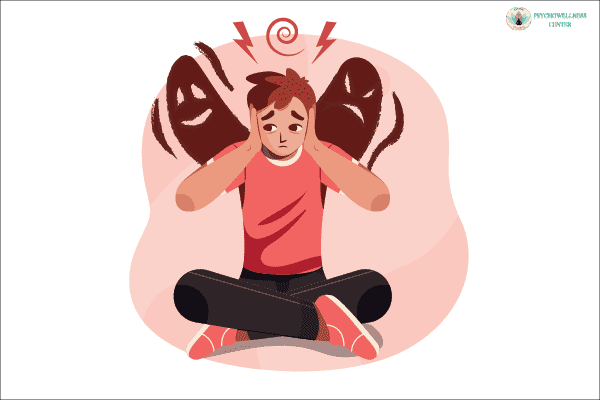Best Occupational Therapist in Dwarka Sector 13 Dwarka Delhi

Occupational therapy (OT) is a vital healthcare service that helps individuals of all ages participate in meaningful activities or "occupations." It plays a crucial role in promoting independence, enhancing quality of life, and fostering physical, mental, and emotional well-being. While occupational therapy is often associated with physical rehabilitation, its impact spans much broader domains, including paediatrics, geriatrics, mental health, and cognitive rehabilitation.
Who Can Benefit from Occupational Therapy?
1. Children
Occupational therapy is particularly beneficial for children facing developmental delays, sensory processing issues, or motor impairments. OTs work with children to enhance their ability to perform everyday tasks, from learning to write to playing with peers.
- Children with Autism Spectrum Disorder (ASD): Occupational therapists assist children with ASD by improving social interactions, sensory processing, and motor skills. Therapies can help children manage sensory sensitivities and develop skills for independent living.
- Children with ADHD: OT interventions can help children with attention deficit hyperactivity disorder (ADHD) improve focus, attention, and self-regulation. Through task management and structured routines, OTs can aid in reducing impulsivity and promoting organised behaviour.
- Developmental Delays: For children who are lagging in motor skills, coordination, or communication, occupational therapy provides interventions that support physical, cognitive, and social development.
- Fine Motor Coordination: Children experiencing challenges with fine motor skills, such as holding a pencil, cutting with scissors, or buttoning clothes, can greatly benefit from occupational therapy to develop these skills.
2. Adults
Occupational therapy isn't just for children, adults who have experienced physical injuries, mental health conditions, or cognitive impairments can benefit from OT services as well.
- Post-Injury or Post-Surgery: Following a major surgery or injury, individuals may struggle with daily tasks like dressing, bathing, or cooking. Occupational therapists provide rehabilitation to restore function and help individuals regain their independence.
- Chronic Pain and Mobility Issues: People suffering from conditions such as arthritis, multiple sclerosis, or fibromyalgia can benefit from OT by learning techniques to manage pain, conserve energy, and maintain mobility.
- Mental Health Disorders: Occupational therapy can assist individuals with mental health challenges, including depression, anxiety, and PTSD. OTs help patients develop coping mechanisms, manage stress, and improve emotional regulation.
- Cognitive Rehabilitation: For adults dealing with cognitive decline due to conditions like stroke, brain injury, or dementia, OT helps with memory exercises, problem-solving, and strategies for improving day-to-day functioning.
3. Older Adults
As individuals age, they often face various challenges in performing activities of daily living (ADLs), such as grooming, cooking, and maintaining mobility. Occupational therapy is essential in supporting aging individuals and helping them retain independence.
- Falls Prevention: One of the main concerns for older adults is the risk of falls. Occupational therapists conduct home assessments and provide interventions to reduce hazards and improve balance and coordination.
- Memory and Cognitive Impairments: For older adults experiencing early-stage dementia or Alzheimer’s disease, occupational therapy can help maintain cognitive abilities through exercises aimed at enhancing memory and problem-solving.
- Maintaining Independence: OT helps seniors continue performing ADLs like dressing, eating, and bathing, as well as engaging in meaningful activities, including hobbies and socialisation.
4. People with Disabilities
Individuals with physical, intellectual, or developmental disabilities often struggle with daily tasks that require fine and gross motor coordination. Occupational therapy can help enhance their capabilities.
- Developmental Disabilities: Children and adults with Down syndrome, cerebral palsy, or intellectual disabilities receive help from OT by improving motor skills, sensory processing, and coordination.
- Traumatic Brain Injury (TBI): Occupational therapists help in the rehabilitation of individuals who have suffered from brain injuries, helping them regain independence and improve cognitive, motor, and social skills.
- Sensory Processing Disorder (SPD): Individuals with SPD may experience difficulties in responding to sensory stimuli. Occupational therapists provide sensory integration therapy to help individuals manage sensitivities and improve their responses to different sensory inputs.
Psychowellness Center and Its Therapists
The Psychowellness Center is a multidisciplinary healthcare facility offering specialised services to individuals facing a variety of mental, emotional, and physical challenges. The center brings together a team of highly skilled professionals, including occupational therapists, psychologists, and psychiatrists, to provide personalized treatment plans that cater to each client's unique needs.
- Dr. R K Suri is a renowned senior clinical psychologist, and his expertise lies in working with individuals across the lifespan, from children with developmental delays to older adults coping with physical and cognitive impairments. Dr. Suri’s approach is comprehensive, focusing on improving clients’ physical, cognitive, and emotional well-being.
- Dr. Kamal Agarwal is an experienced occupational therapist specialising in helping individuals of all ages improve their physical, emotional, and cognitive skills. He focuses on personalized therapy plans to assist patients with daily living skills, motor functions, and rehabilitation. His compassionate approach aids in enhancing the quality of life for those with various physical and developmental challenges.
- Ms. Sakshi Dhankhar specialises in physical rehabilitation, helping clients recover mobility and independence after surgery, injury, or stroke through targeted exercises and adaptive tools.
- Mr. Utkarsh Yadav focuses on mental health, helping clients manage anxiety, trauma, depression, and mood disorders with coping strategies, emotional regulation, and mindfulness techniques.
Conclusion
Occupational therapy is a versatile and essential healthcare service that benefits individuals of all ages and backgrounds. Whether it’s a child with developmental delays, an adult recovering from an injury, or an older adult managing cognitive decline, occupational therapy plays a critical role in improving the quality of life and restoring independence.
The Psychowellness Center, with its team of experts like the best psychologists, offers a holistic approach to treatment, combining physical rehabilitation with mental health support to help clients achieve their goals. With personalised treatment plans and evidence-based practices, the center is dedicated to fostering the overall well-being of its clients.
Contributed by Ms Tanu Sangwan, Counselling Psychologist
References:
- American Occupational Therapy Association (AOTA). "Who Can Benefit from Occupational Therapy?" AOTA. Accessed January 17, 2025. https://www.aota.org
- Case-Smith, J., & O'Brien, J. (2015). Occupational Therapy for Children and Adolescents. Elsevier.
- Davis, L. (2017). Introduction to Occupational Therapy. F.A. Davis Company.
- World Federation of Occupational Therapists (WFOT). "The Role of Occupational Therapy in Different Settings." WFOT. Accessed January 17, 2025. https://www.wfot.org




SHARE